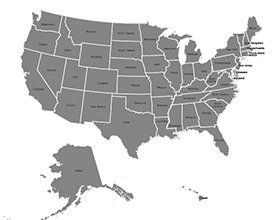Benefit Buzz - June 2025
Benefit tips brought to you by MFC Benefits, LLC

Learn more about the IRS releasing HSA/HDHP Limits for 2026 and Federal Agencies announcing the Nonenforcement Policy for Mental Health Parity Rule.
IRS RELEASES HSA/HDHP LIMITS FOR 2026
On May 1, 2025, the IRS released the inflation-adjusted limits for health savings accounts (HSAs) and high deductible health plans (HDHPs) for 2026. The IRS is required to publish these limits by June 1 of each year. These limits include the following:
- The maximum HSA contribution limit
- The minimum deductible amount for HDHPs
- The maximum out-of-pocket expense limit for HDHPs
These limits vary based on whether an individual has self-only or family coverage under an HDHP.
Eligible individuals with self-only HDHP coverage will be able to contribute $4,400 to their HSAs in 2026, up from $4,300 in 2025. Eligible individuals with family HDHP coverage will be able to contribute $8,750 to their HSAs in 2026, up from $8,550 in 2025. Individuals aged 55 or older may make an additional $1,000 “catch-up” contribution to their HSAs.
The minimum deductible amount for HDHPs increases to $1,700 for self-only coverage and $3,400 for family coverage for 2026 (up from $1,650 for self-only coverage and $3,300 for family coverage for 2025). The HDHP maximum out-of-pocket expense limit increases to $8,500 for self-only coverage and $17,000 for family coverage for 2026 (up from $8,300 for self-only coverage and $16,600 for family coverage for 2025).
Employers sponsoring HDHPs should review their plans’ cost-sharing limits (i.e., the minimum deductible amount and maximum out-of-pocket expense limit) when preparing for the plan year beginning in 2026. Also, employers allowing employees to make pre-tax HSA contributions should update their plan communications with the increased contribution limits.
FEDERAL AGENCIES ANNOUNCE NONENFORCEMENT POLICY FOR MENTAL HEALTH PARITY RULE
On May 15, 2025, the U.S. Departments of Labor, Health and Human Services, and the Treasury (Departments) released a statement regarding the nonenforcement of the 2024 final rule under the Mental Health Parity and Addiction Equity Act (MHPAEA). The statement relates to a lawsuit brought by an employer trade group seeking to invalidate the final rule. The litigation has been put on hold while the Departments reconsider the final rule, including whether to modify or rescind it altogether.
According to the Departments’ statement, they will not enforce the 2024 final rule (or otherwise pursue enforcement actions) based on a failure to comply that occurs prior to a final decision in the litigation, plus an additional 18 months. The Departments are also reexamining their MHPAEA enforcement program more broadly.
MHPAEA requires parity between a group health plan’s medical/surgical benefits and mental health/substance use disorder benefits. The 2024 final rule’s changes are extensive and primarily focus on nonquantitative treatment limitations (NQTLs). NQTLs include a variety of strategies that generally limit the scope or duration of benefits, such as prior authorization requirements. The final rule generally applies for plan years beginning on or after Jan. 1, 2025; however, certain key requirements apply for plan years beginning on or after Jan. 1, 2026.
Employer-sponsored health plans should continue to comply with MHPAEA’s statutory requirements and refer to a final rule from 2013 for guidance. Employers should also monitor updates regarding any modifications to the 2024 final rule.
Provided to you by MFC Benefits, LLC
© 2025 Zywave, Inc. All rights reserved
Download the PDF copy here.











